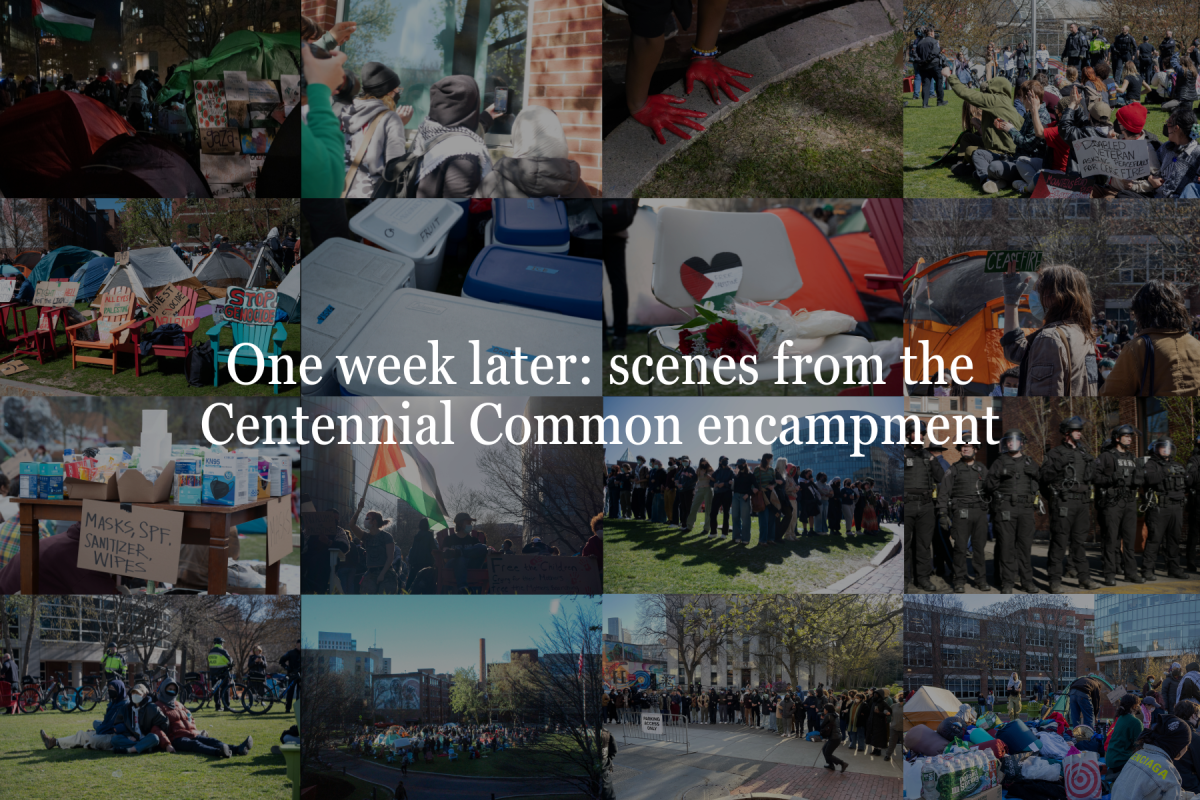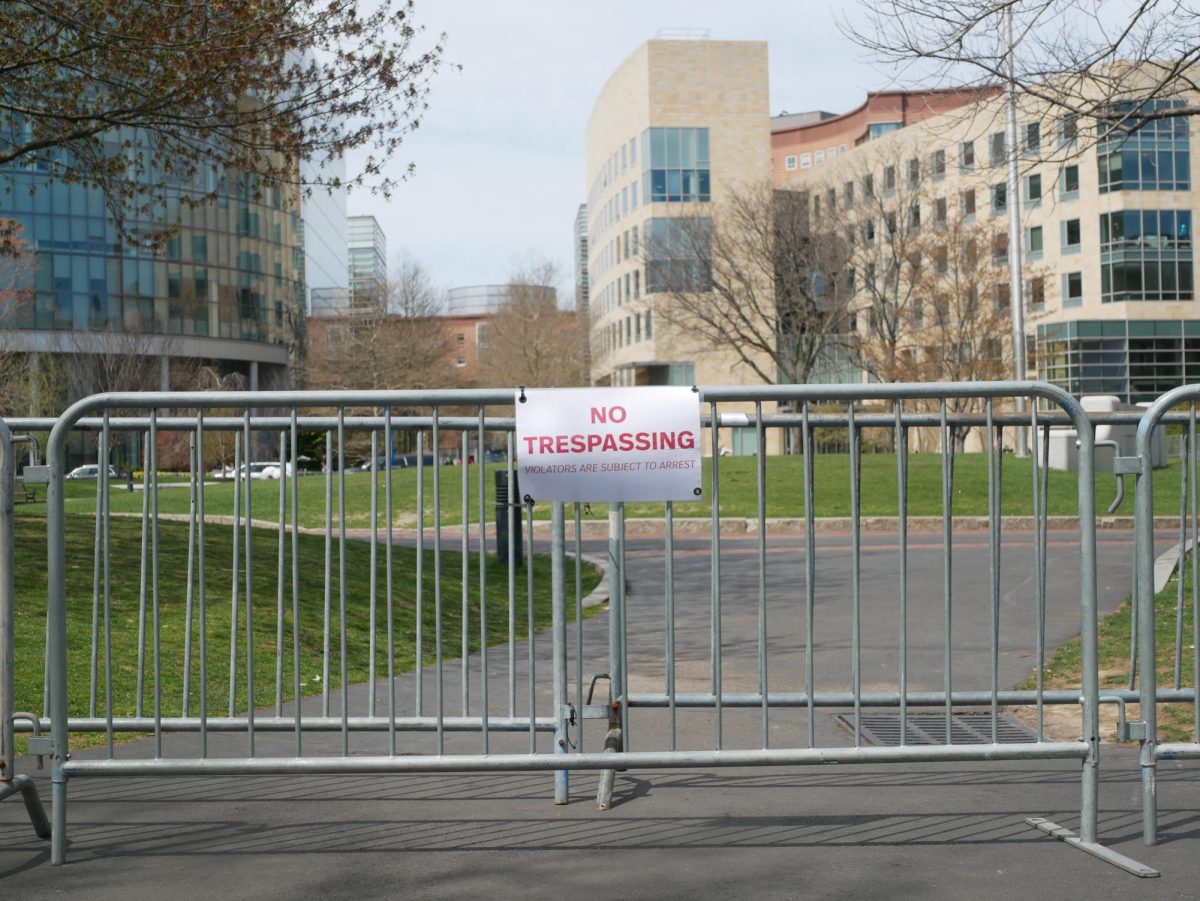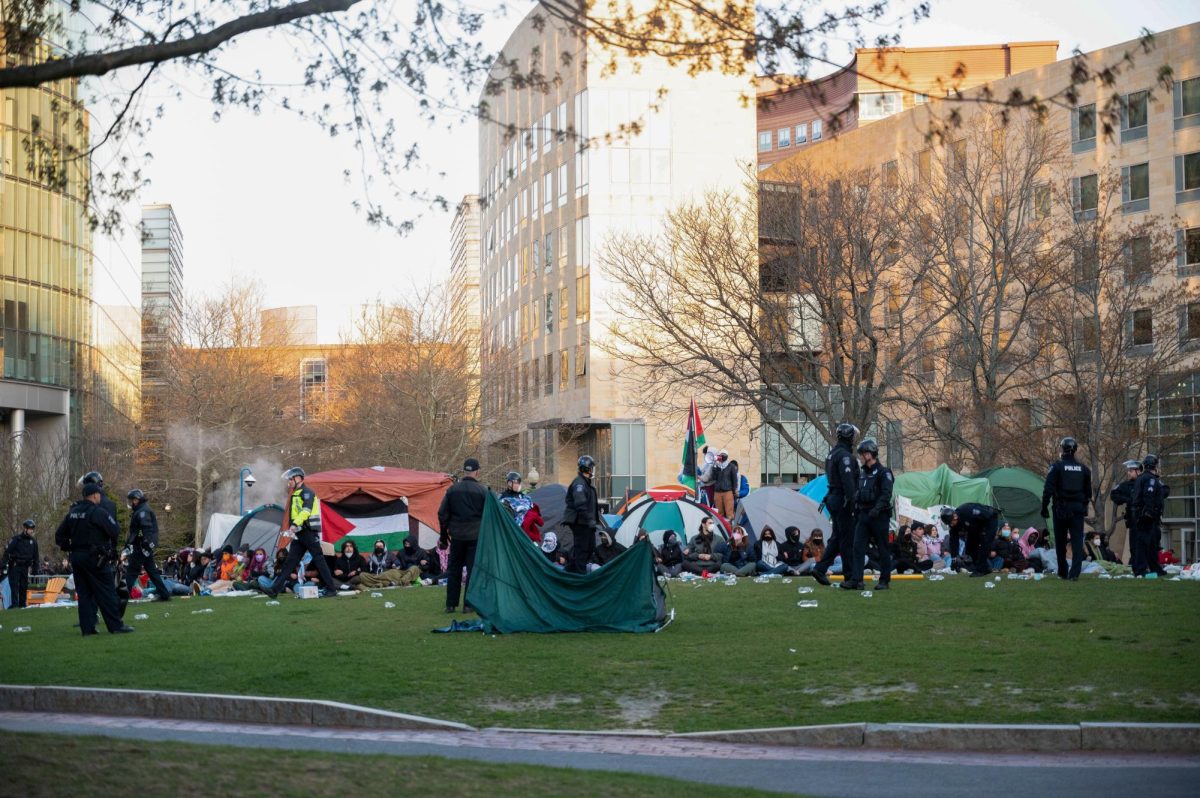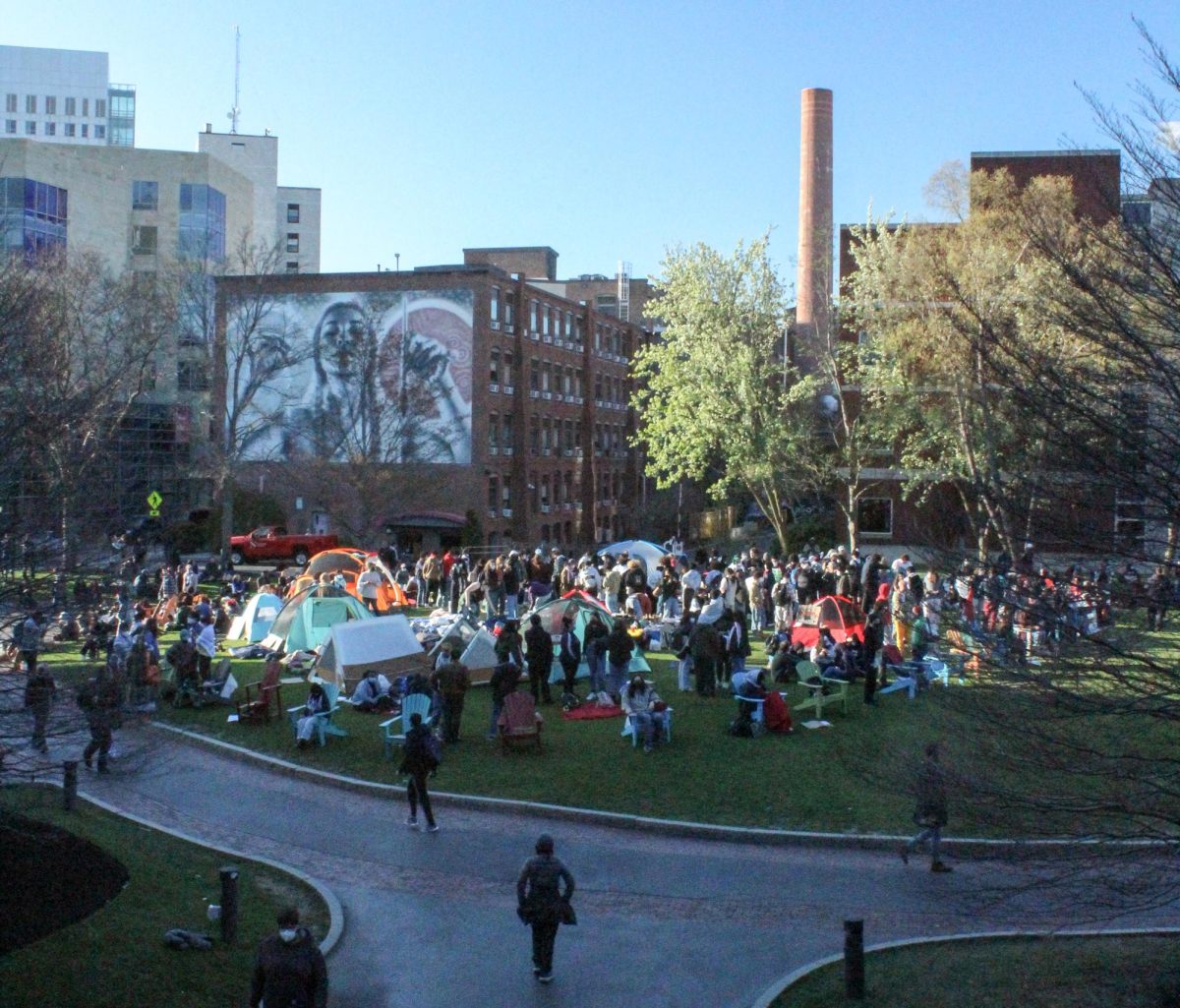By Leila Fadel
Hector Giraldo, a highway worker, was at a meeting on Dec. 16 2001, that the paramilitary had called for all union workers in his town in Colombia. They all gathered and waited, and then it happened: one of the members shot his union leader seven times in front of the crowd of men.
They declared the union disbanded, then they called three names, one of them was his. They gave him two choices, leave or die, and he left. That was one year ago, but next week he’ll be going back to his home country even it means death.
Giraldo spoke Wednesday at the Progressive Student Alliance Teach In called, “What Has Globalization Done for you Lately?” about PLAN Colombia, the Federal Trade Area of the Americas and Globalization. He has been in the U.S. for over a year to talk on the Colombia no one ever sees.
“[The Media] doesn’t talk about the war against the Colombian people. It’s called PLAN Colombia, and it’s goal is to get rid of social organizations in Colombia,” Giraldo said.
The U.S. government began PLAN Colombia as a military intervention with an official goal that states that it will destroy the coca crop, used to make cocaine and stop the guerrillas that destabilize the Latin American “Democracy.”
But Giraldo said that this was a lie to cover up the truth. The truth, he said, is that the United States is using PLAN Colombia to usher in the FTAA program which forces the privatization of companies, the disbandment of unions and lower wages for already poorly paid workers. Colombia, Giraldo said, is in a strategic location between the Panama Canal and the oil of Venezuela. When union leaders denounced the corrupt privatization of institutions the paramilitary groups began to appear, groups that Giraldo said are secretly supported by the government and funded by drug money. They came down on union leaders with violence.
“When union workers resisted (privatization), paramilitary groups threatened the union workers,” Giraldo said. “It is a state of 100 percent impunity; Colombia is basically the most dangerous place in the world for union leaders. There is a bloody repression for resisting the neoliberalists, thousands of assassinations.”
The helicopters that fumigate the coca crop use a chemical that has been illegal in America since 1978 for its toxic nature, he said. The fumigation often ends up in the water and kills other important crops, like corn. The paramilitary is not an anti-government movement but a violent military group that the government gives the green light to to intimidate and kill union leaders, he said. The negotiations between the guerillas and the Colombian government are a sham, he said, a ploy to legalize the groups that they already support.
PLAN Colombia is a program to punish the poor farmer instead of deal with the problem through drug rehabilitation in the United States and the disbandment of drug cartels, he said.
“If the [United States and the Colombian government] is really dealing with drug trafficking, why aren’t they going after cartels and the banks that make profit instead of punishing small farmers who grow coca because it is the only profitable crop?” Giraldo said. “We can poison all the crops in the world but if there is still demand for drugs, they will find a place to plant.”
Before he ended hi story as a highway worker and a trade leader, he said that he had been happy to be in Boston during the janitor strike, to help with the mobilization of workers here as he had done in Colombia.
“It is because of PLAN Colombia that I am here asking the people in the United States that if tax dollars go to Colombia, they shouldn’t be sent to helicopters and guns, but to education and clinics,” he said.
Giraldo was the main attraction of the event, but a locally made movie on the FTAA was shown to open the event. The movie showed the poverty that the FTAA caused and the reasons to make sure that the program does not pass. Anna Hendricks of the Boston Global Action Network and the FTAA taskforce also made a quick speech about the power of resistance.
She appealed to the audience to protest the FTAA by joining the mobilization against it through various protests in Hartford, Conn. this month and Washington, D.C. in April.
She told the audience about the massive social mobilizations she saw throughout Latin America against the FTAA and against the effects of globalization. She said that the $1.6 billion that the U.S. contributes to Colombia goes to end this mobilization and to help the Colombian military train the right-wing paramilitaries.
“This military aid is going to Colombia to squelch the mobilization of the people against the FTAA,” she said.
Hendricks closed with the thought that although the information presented at the teach-in was bleak and sad, there was hope through mass mobilization in the United States with education, lobbying state representatives and protest, she said.
The PSA was happy with the turn out and hoped that students would think about what they had learned.
“A lot of people don’t even know what the FTAA is,” Mike Amato, a junior sociology and linguistics major and a PSA member said. “First you educate people, then you mobilize them into action. We want to make sure that policy makers know that this is not something we want.”
Giraldo will go back to Colombia next week with a higher risk from the paramilitary groups on his head than before because, in the United States he spent six months in Washington, D.C. and six months in Boston speaking about Colombia. Speeches like the one he gave at Northeastern are worth the risk, he said, because those who listened will be part of the network of change.
“The struggle for a genuine peace in Colombia continues and I can’t abandon it,” he said. “Colombia is where we’re trying to build an alternative, that is where my home is, where my family is.”












